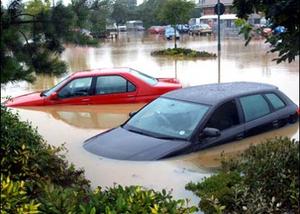DisastersNew research to improve protection and recovery from major floods
As parts of the United Kingdom suffer further flooding with more heavy rain forecast, three research projects funded by the Engineering and Physical Sciences Research Council (EPSRC) could radically change the way U.K. government and local authorities prepare for and respond to floods, mitigating future risks

U.K. researchers seek to improve flood resiliency // Source: totalcar.rs
As parts of the United Kingdom suffer further flooding with more heavy rain forecast, three research projects funded by the Engineering and Physical Sciences Research Council (EPSRC) could radically change the way U.K. government and local authorities prepare for and respond to floods, mitigating future risks. EPSRC says it will invest around £4 million into funding the projects.
Researchers at Newcastle University will lead a team to look at the most critical flood scenarios caused by sequences or clusters of extreme weather events striking vulnerable systems of flood defenses, urban areas, communities, and businesses. They will assess the risk of situations where a second flood may strike before coastal or river defenses have been reinstated after damage, or householders and small businesses are in a vulnerable condition recovering from the first flood.
By examining such events and identifying the worst case scenarios, the researchers hope their findings will lead to enhanced flood resilience and better allocation of resources for protection and recovery. Ultimately the processes developed could be used worldwide.
Another project led by the University of Nottingham will put people, local authorities, and businesses at the center of their research using two-way communication to co-produce new strategies for managing flood risk. The goal is to manage urban flooding sustainably while enhancing urban life by adopting new technologies. Green urban spaces will be developed through new build, retrofit, and urban renewal. This could lead to major transformations in the way cities are planned, developed, and managed.
A Durham University-led research team will develop cutting-edge computer modeling to look at how emergency planners, the emergency services, local authorities, businesses, and other key players interact in the aftermath of a flood. The research will lead to the creation of the first unified framework which integrates and evaluates organizations’ changed behaviors in the face of flood events and how these impact on business continuity management and future preparedness. The EPSRC says the findings will go toward better planning and response in the future as well as mitigating economic losses.
